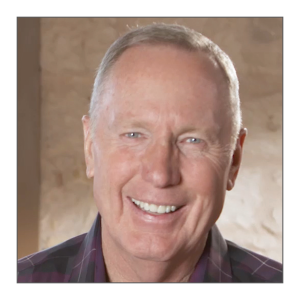Happiness. Everyone craves it, wants it, searches for it. We are longing for this sense of contentment and wellbeing. Worldwide, people profess that happiness is their most cherished goal.1 The most popular class in the three-century history of Yale University is on happiness.2
We think we’ve figured happiness out. We think we know how and where to find it. The often-used front door to happiness is the one described by the advertising companies: acquire, retire, and aspire to drive faster, dress trendier, and drink more. Happiness happens when you lose the weight, get the date, find the mate, or discover your fate. It’s wide, this front door to happiness . . . or so they claim.
 Advertising companies claim to have the key to happiness, yet our society still seems to be struggling to find it. Only one-third of Americans surveyed said they were happy. In the nine-year history of the Harris Poll Survey of American Happiness, the highest index was 35 percent. This means a cloud of perpetual grayness overshadows two out of three people.3
Advertising companies claim to have the key to happiness, yet our society still seems to be struggling to find it. Only one-third of Americans surveyed said they were happy. In the nine-year history of the Harris Poll Survey of American Happiness, the highest index was 35 percent. This means a cloud of perpetual grayness overshadows two out of three people.3
What’s up? How do we explain the gloom? While the answers are varied and complex, among them must be this idea: we are using the wrong door.
The motto on the front door says, “Happiness happens when you get.” The sign on the lesser-used back door counters, “Happiness happens when you give.” And standing at the entryway to welcome you is Jesus of Nazareth.
Jesus was accused of much, but he was never, ever, described as a grump, sourpuss, or self-centered jerk. People didn’t groan when he appeared. They didn’t duck for cover when he entered the room.
He called them by name.
He listened to their stories.
He answered their questions.
His purpose statement read, “I came to give life with joy and abundance” (John 10:10). Jesus was happy, and He wants us to be the same.
But how? How do we attain this type of true side-door happiness? We can begin by taking a cue from the New Testament. The New Testament contains more than fifty “one another” statements—practical principles for making happiness happen. In my study, How Happiness Happens, I have condensed them down into a list of six. Let me talk about the first one here, though: Accept One Another.
We are creatures of comfort and creatures of habit. We like the familiar and predictable. We like agreement over conflict. Peace over disruption. These are the things that make us feel happy, content, at rest. And all these things—comfort, familiarity, agreement—are achievable as long as we interact only with people who are just like us. People who are part of the same political party, church denomination, ethnic group, or country. People who like what we like and dislike what we dislike.
 This is all fine and good, but there is one problem. To live in the world we live in today, we are bound to interact with someone who is different than us. A co-worker, someone next to us on the bus, a neighbor, classmate, teacher, or pastor. We have been created equal, but we have not been created alike. For this reason, if our happiness depends on being surrounded by people who agree with us all the time, we won’t feel happy very often.
This is all fine and good, but there is one problem. To live in the world we live in today, we are bound to interact with someone who is different than us. A co-worker, someone next to us on the bus, a neighbor, classmate, teacher, or pastor. We have been created equal, but we have not been created alike. For this reason, if our happiness depends on being surrounded by people who agree with us all the time, we won’t feel happy very often.
In Romans 15:7, Paul wrote, “Accept one another, then, just as Christ accepted you, in order to bring praise to God.” Note that Paul did not specify to the Roman church whom they should accept. He did not say accept the people you like or accept the people who look like you or accept the people who think the same way as you think. He left it general and open-ended. Accept whom? One another.
Could it be we are called to accept the Democrat and the Republican? The Midwesterner and Northerner? The immigrant and the native? The Catholic and the Protestant?
Further, Paul instructs us to accept one another as Christ accepted us. How did Christ accept us? He loved us so much that he made the greatest sacrifice for us. He died for us. Rose from the grave for us. Left the Holy Spirit to dwell within us. Christ welcomed us into the family of God. And this, the Bible says, is how we are to welcome others.
So open your mind and your heart as you explore today’s topic. Discover how accepting one another can make happiness happen in your own life—and for those you accept as Christ accepted you.
Click here for more on How Happiness Happens and for a deal on the study.
 Since entering the ministry in 1978, Max Lucado has served churches in Miami, Florida; Rio de Janeiro, Brazil; and San Antonio, Texas. He currently serves as Teaching Minister of Oak Hills Church in San Antonio. He is America’s bestselling inspirational author with more than 140 million products in print.
Since entering the ministry in 1978, Max Lucado has served churches in Miami, Florida; Rio de Janeiro, Brazil; and San Antonio, Texas. He currently serves as Teaching Minister of Oak Hills Church in San Antonio. He is America’s bestselling inspirational author with more than 140 million products in print.

